On January 26, the tragic news of Kobe Bryant’s passing reached us, following the helicopter crash in Calabasas that took 9 lives, including those of Bryant’s 13-year-old daughter Gianna, six family friends and the pilot. The horrific incident, understandably, caused many people to doubt the safety of traveling by helicopter, an unusual transportation method that’s been growing in popularity in major cities, like Los Angeles.
Many choose helicopter travel for convenience. Not only can you travel to your destination faster, more comfortable, but also land in more locations than a regular plane would allow you. Helicopter’s vertical flight capability allows it to land in many locations without the need for a runway which is required with airplanes. Of course, not many can afford personal and frequent flights so the majority of people choose other types of transport instead.
Following Kobe Bryant’s death, many started doubting the safety of helicopters
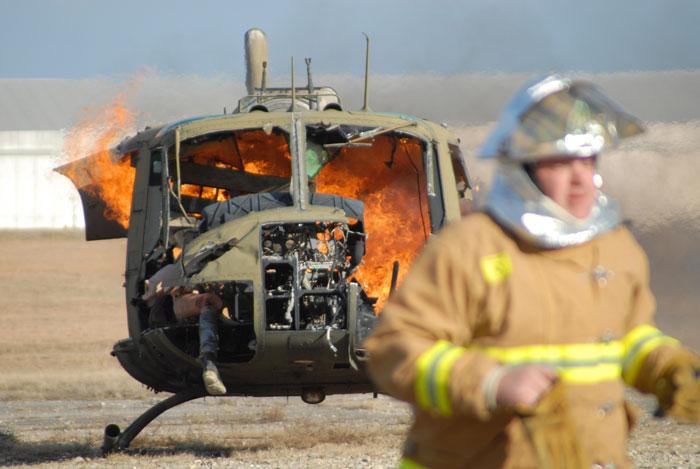
Image credits: U.S. Army (not actual photo)
Nonetheless, there might be plenty of opportunities for one to experience flying with helicopter such as sightseeing tours, and that’s where the majority of people are currently having doubts. So, is flying by helicopter actually safe?
To put it shortly, it’s not that easy to determine which modes of travel are safer since there are a plethora of different factors determining your trip. There is time spent on a vehicle, how often you use it, how likely you are to experience an accident, etc. However, some people have tried to gather data to get at least somewhat of a picture.
Seth Kaplan of thepointsguy tried to summarize the data into a “death index” which is the number of times more likely you are to die from travelling by a specific vehicle. Kaplan explained the method of the index:
“To construct this methodology, TPG looked at several data sets. We know the number of fatal accidents or fatalities for all modes of transportation. We know the number of flight hours for airline flights and helicopter flights. We know the number of passenger miles traveled for airline flights, rail travel and (roughly) car travel.
We don’t know the number of passenger miles for helicopter flights and there’s no such thing as flight hours for cars and trains. But based on the flight-hours data, we DO know how much safer it is to fly on an airline than to fly on a helicopter. And based on the passenger-miles data, we DO know how much safer it is to fly on an airline than it is to ride Amtrak or other mass transit — and, in turn, how much safer it is to be on mass transit than it is to ride in a car. Then we can use all the relative safety numbers to come up with a comprehensive ranking (albeit one with caveats; more on those in a moment) for all modes of transportation.”
Helicopters are, in fact, safer than driving a car
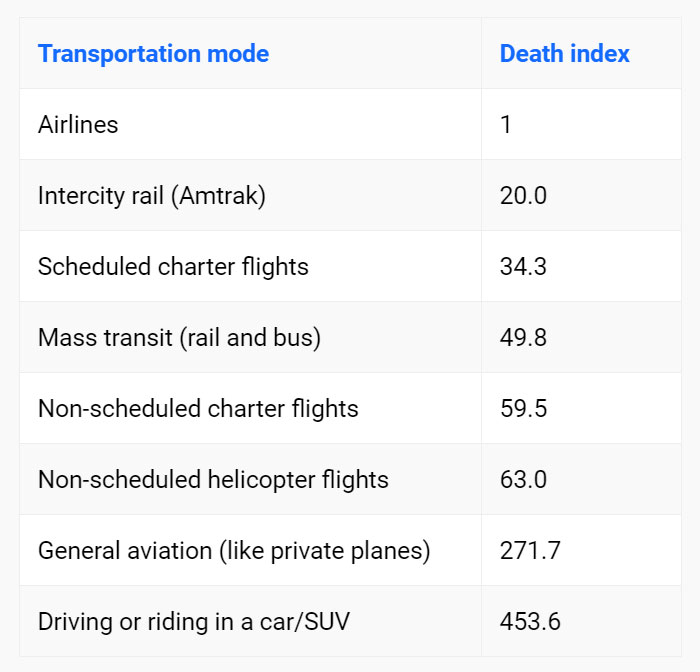
Image credits: thepointsguy
According to Kaplan’s “death index” airlines are the safest mode of travel with the index of 1. In contrast, non-scheduled helicopter flights have an index of 63.0, which is pretty alarming. However, not as alarming as the index next to “driving or riding in a car/SUV” which is a shocking 453.6. So, according to Kaplan’s “death index” calculations, helicopter flights are more dangerous than airline flights, however much safer than driving a car.
Air travel is statistically and factually safer than driving a car (Diagram: Aircraft Fatalities by Year)
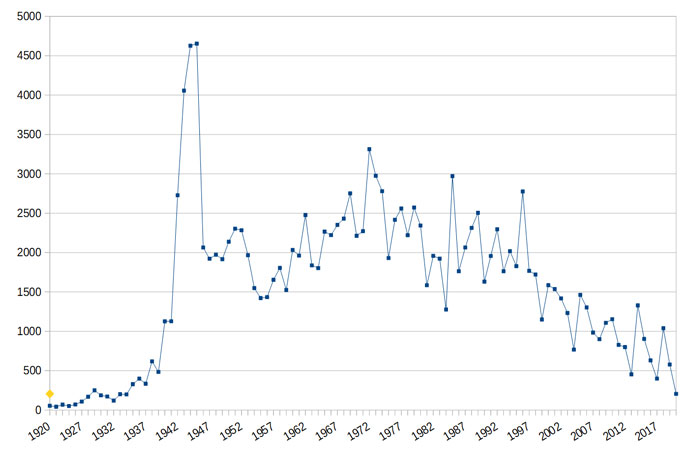
Image credits: Bureau Of Aircraft Accidents Archives
According to Soo Kim of The Telegraph, there have been some high-profile helicopter crashes in the past few years, including that of Kobe Bryant’s and the 2018 crash in Leicester that took the life of Vichai Srivaddhanaprabha, the owner of Leicester City football club. However, if you look at the data presented by International Helicopter Safety Team, the number of helicopter crashes has been dropping throughout the years. Compared to 2013, where 103 accidents (25 fatal) were reported, 2017 only had 43 accidents (11 fatal) in total.
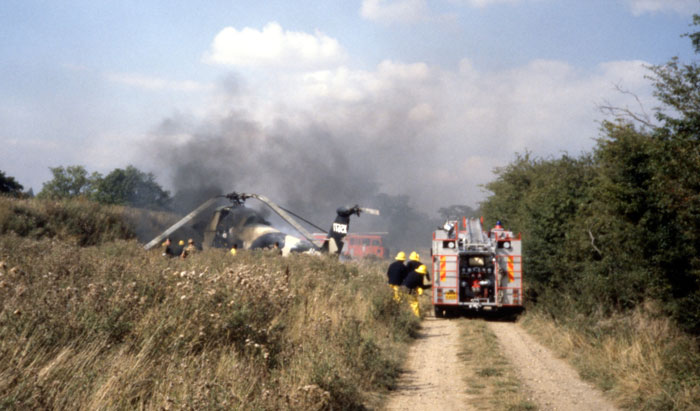
Image credits: foundin_a_attic (not actual photo)
The Federal Aviation Administration report says: “Prior to 2006, the number of worldwide civil helicopter accidents was rising at a rate of 2.5 per cent per year. Since 2006, the worldwide civil helicopter fleet has grown by 30 per cent but the number of accidents has decreased in key global regions by 30 to 50 per cent.”
Diagram: Registered Helicopter Accidents and Fatal Accidents
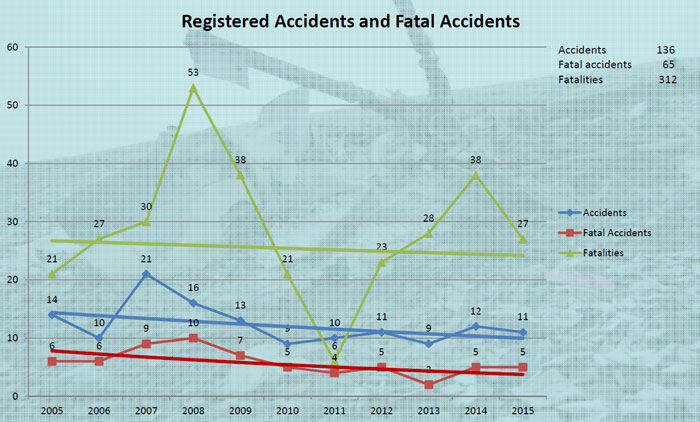
Image credits: Helicopter Safety Analysis Team of IHSTI-CIS
Unfortunately, in March 2019, U.S. Helicopter Safety Team (USHST) reported that while the number of helicopter accidents remained steady over the last three years, declining slightly from 3.67 per 100,000 flight hours in 2016 to 3.62 in 2018, it seems that the accidents that occur are more deadly than before, as the fatality number went from 0.54 per 100,000 flight hours in 2016 to 0.6 in 2017 to 0.72 in 2018.
Diagram: Helicopter Accident Rate Per 100,000 Hours
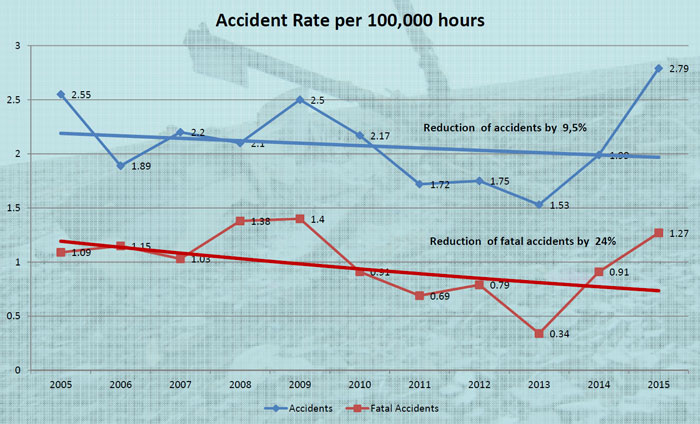
Image credits: Helicopter Safety Analysis Team of IHSTI-CIS
The answer to why helicopters crash and yield so many fatalities lies in the way helicopters function. Most of the crashes were tied to “non-essential low-altitude operations” where the helicopters encounter buildings, power lines or hills that suddenly appear in the fog. In 2018, these made up 33% of all accidents, up from 15% between 2009 and 2013.
Diagram: Accident Rate Per Registered Light Aircraft
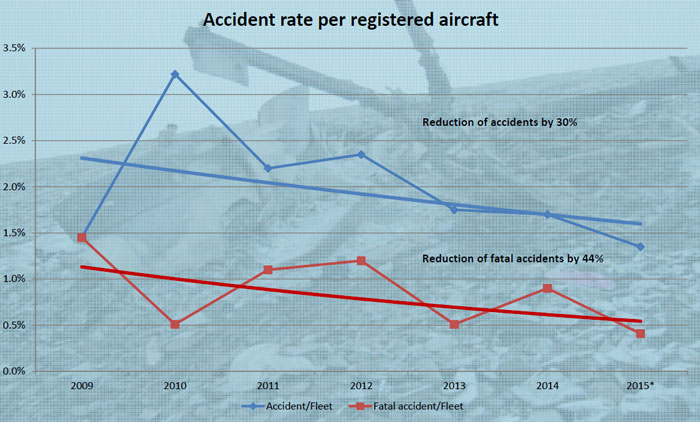
Image credits: Helicopter Safety Analysis Team of IHSTI-CIS
So, are helicopter flights more dangerous than other types of transportation? That depends on the statistics you look at, but the general consensus are that they are more dangerous than commercial plane flights, however safer than driving a car. We must not forget that helicopters are often used in risky situations such as search and rescue missions, in war zones, and dangerous weather which might skew the overall image presented in the statistics.
from Bored Panda https://ift.tt/37DHV2o




0 Yorumlar